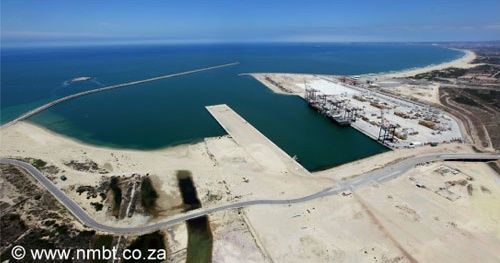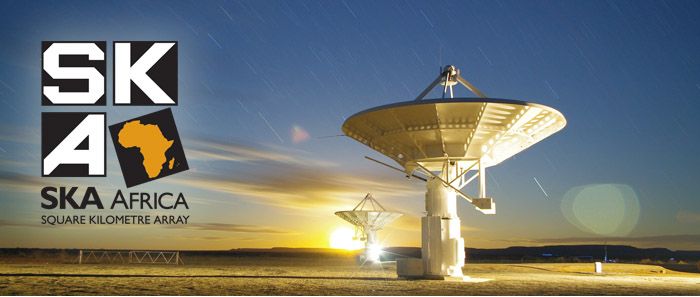Business News
Business News
Economic Zones (SEZs) in the Pipeline
The SEZs are aimed to promote economic growth and job creation, by setting up enabling environments for developing targeted industrial activities and attracting both domestic and foreign direct investment in manufacturing and tradable services.

The Department of Trade and Industry has identified 10 potential SEZs countrywide, and will soon be conducting feasibility studies to determine their viability.
Presenting the SEZs Bill to Parliament's Portfolio Committee on Trade and Industry in Cape Town on 26 April 2013, the Minister of Trade and Industry, Rob Davies, said his department was close to finalising SaldanhaBay in the Western Cape as an SEZ. South Africa’s existing industrial development zones (IDZs) in RichardsBay, East London and Coega outside Port Elizabeth will also fall under the SEZs programme.
SEZs included free ports, free trade zones, IDZs and sector development zones.
Minister Ebrahim Patel: Infrastructure Development and Job Creation media briefing
We welcome you to the post State of the Nations Address media briefing. This briefing is an opportunity to share with yourselves and the rest of the country progress and plans with regard to government’s commitment to achieving key government priorities which are:
- Decent employment through inclusive growth (Outcome 4)
- An Efficient, Competitive and Responsive Infrastructure Network (outcome 6).
The Cabinet Lekgotla held in February evaluated the impact of the New Growth Path since its adoption in October 2010 and considered progress with implementation of the National Infrastructure Plan. It reaffirmed the dynamic relationship between the National Development Plan as the overall vision of government and the strategies to achieve that vision, namely the New Growth Path as well as its key jobs drivers such as the National Infrastructure Plan and the Industrial Policy Action Plan.
The President in the SoNA highlighted the centrality of the NDP common vision for driving government priorities.
Despite signs of improvement, the world economic situation and prospects continue to be challenging. Global economic growth remained tepid in 2012, with most countries experiencing a below par growth or no growth at all. In the face of this subdued growth, the joblessness continues, with global unemployment still above its pre-crisis level and unemployment in the euro area rising rapidly.
Reducing the number of unemployed South Africans is our central challenge. Unemployment means that too many of our people, especially the youth, are excluded from core economic and social relationships, from the opportunity to contribute to our country, their communities and their families. We need to create the conditions in the economy and society that will sustain the growth in jobs and indeed accelerate it.
The New Growth Path was introduced in October 2010 and since then 603,000 more jobs were created.
Overall economic growth has recovered from the 2008/09 downturn. In the past two years, it has averaged well over 2.5 percent a year. That said the second half of 2012 saw a fall in the growth rate, largely due to the recession in Europe and the slowdown in US growth. These global trends affect South African exports, especially through lower mineral prices. In turn, that will increase the obstacles to job creation and growth in the coming year.
7th March 2013
SA Ranked Top African Emerging Economy

The country ranked ahead of Nigeria as a potential investment destination, coming in at 14th on the index while Nigeria ranked 17th.
South Africa has been ranked as the leading emerging economy in Africa and the only country on the continent to be ranked in the top 15 worldwide, according to the Emerging Markets Opportunity Index conducted by international advisory firm Grant Thornton.
"Although recent events in the mining sector have hurt our country's reputation as a destination of choice for foreign direct investment, there are significant benefits that continue to attract investors," Grant Thornton South Africa's national chairperson, Deepak Nagar, said in a statement.
The index analyses a variety of indicators from Grant Thornton's International Business Report, the International Monetary Fund and the United Nations Human Development Report. Indicators include economic size, population, growth prospects and levels of development to rate the countries' potential to attract business investment.
SKA News November 2012

The Square Kilometre Array (SKA) will be built at an estimated cost of €1.5 billion, making it the biggest ‘Big Science’ project in the world to be formally launched during this current period of austerity. The agreement to select South Africa/Africa as the main site, with assistance from Australia, was reached by the consortium of countries that have committed to contribute to the cost, including Canada, China, Italy, the Netherlands and the UK. Initial planning for the instrument had been funded by the European Union. The sharing of the project between South Africa and Australia will be around 60 percent SA and 40 percent Australia.
The Office of the SKA Organisation will now lead a detailed definition period to clarify the implementation. This is also referred to as the pre-construction phase. Pre-construction work packages are being designed and industry is being lined up for possible participation in tenders to be launched by the SKA Organisation. The project is expected to be carried out in two phases. The first phase of construction starting in 2013 will allow for limited research by 2020. The second phase beginning in 2018 is due to be ready for complete scientific operations by 2024. Upon completion, the world’s largest radio telescope will comprise 3,000 individual 15-metre wide dishes with a receiver surface of one square kilometre.
There are several benefits for South Africa and Africa in hosting the SKA. The SKA will attract the world’s best scientists and engineers to Africa. To operate, the SKA will require ultra-high speed internet, in excess of 100 Gigabytes per second. Sections of the terrestrial networks in the African partner countries will have to be upgraded by the International SKA Organisation to accommodate the SKA requirements. Direct benefits will accrue in the form of jobs created during the construction and operation of the facility.
Scientific benefits
The SKA will be 50 to 100 times more sensitive than any other radio telescope and this will provide unparalleled dynamical range for studying astronomical objects. The areas of research include:
· Study dark energy and dark matter.
· Measuring gravitational waves using pulsars orbiting black holes.
· Study the formation and evolution of the first stars and galaxies.
· Study the role of cosmic magnetism.
Economic benefits
The SKA represents a net foreign direct investment (FDI) of about €1.5 billion in capital expenditure and €6 billion over a 30-year minimum operations and maintenance period. The creation of thousands of local jobs during the construction phase will provide employment opportunities where every radio telescope station will be built. The project will require highly skilled positions for 500 people in engineering and astronomy. It estimated that 200 of the skilled workers will live in Africa.
The provision of access to broadband connectivity in rural areas of Africa for the SKA will create access to ultra-high performance computing in Africa. The already existing undersea broadband provides new opportunities for business in Africa and also strengthens Africa’s hosting of the SKA.
Socio-economic benefits
To realise the socio-economic benefits of hosting the SKA in Africa, it is important to note that the final design, construction and operation should not be left to the astronomers and engineers only. The planning should include inputs from entrepreneurs, engineers, educators and economists. Engineers and astronomers build good telescopes but require assistance to build good economies, particularly in initiatives of the magnitude of the SKA. In addition to the impact on employment and gross domestic products, the SKA will provide many African countries with access to world class facilities for teaching, training and research. Investment by African countries in astronomy, information technology and engineering skills development, will position African countries to maximise the benefits that can be harnessed from hosting the mega telescope in Africa. The image on the global stage of a favourable destination(Africa) of large research infrastructure creates future opportunities in other unrelated areas of science and engineering.
Read more: Ska News Nov 2012 Newsletter (PDF)
GOVERNMENT LINKS
- The Presidency
- SA Constitution
- South African Government
- Department of International Relations and Cooperation (DIRCO)
- Websites of SA Missions Abroad
- Consular Information
- Government Communication and Information System (GCIS)
- Department of Trade & Industry (DTI)
- The South African Revenue Service (SARS)
EDUCATION AND RESEARCH LINKS
BUSINESS LINKS
- Portuguese-South African Chamber of Commerce and Industry (CCILSA)
- North West Development Corporation (NWDC)
- Trade & Investment Kwa-Zulu Natal (TIK)
- Trade & Investment Limpopo (TIL)
- Eastern Cape Development Corporation (ECDC)
- Western Cape Investment and Trade Promotion Agency (WESGRO)
- Gauteng Growth and Development Agency (GGDA)
- Mpumalanga Economic Growth Agency (Mii)
- Free State Investment Promotion Agency (FIPA)


